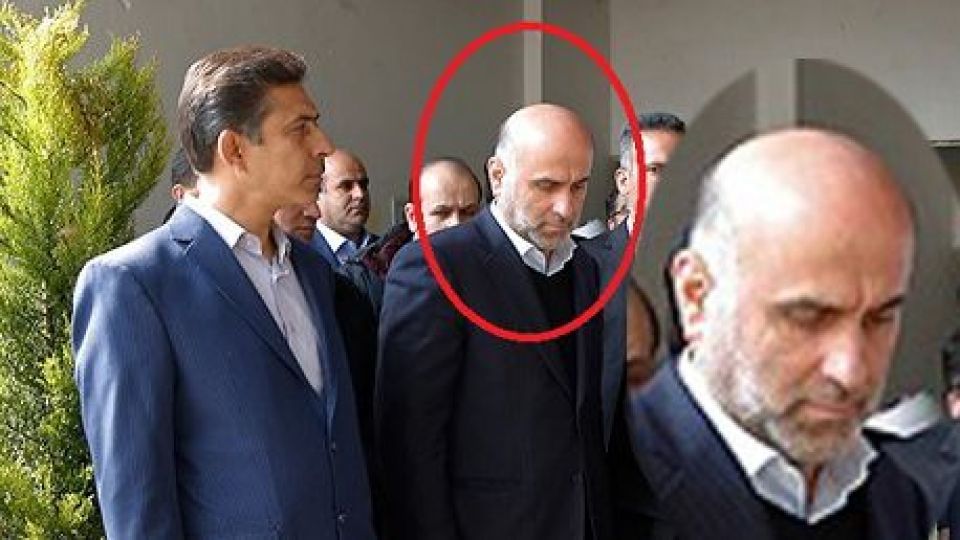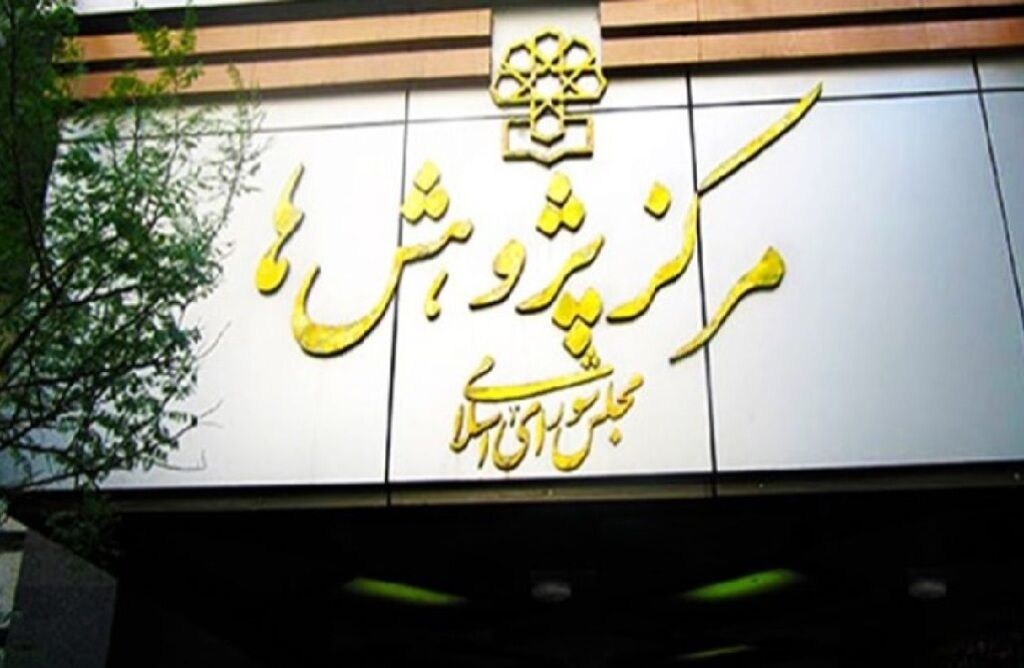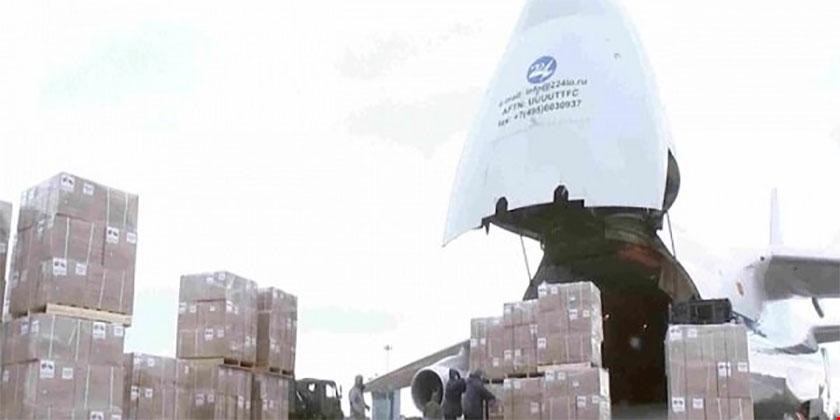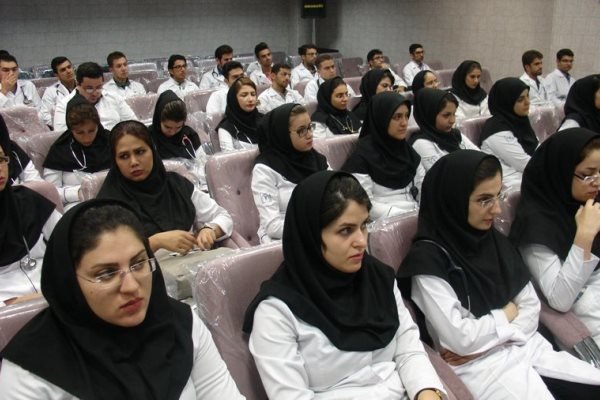
Decrease in Investment Security
The editorial of Kasbokar focuses on how investment insecurity in the country has had a negative impact on construction projects.
In the light of the fact that we had many economic setbacks last year, there has been a significant decrease in the level of investments in Iran. Not many people feel safe to make investments. Meanwhile, domestic and foreign investments are one of the main factors of economic growth. Investment in construction projects has declined, meaning that if this situation continues, the conditions in which to start new construction projects in the country will worsen – which will be a fatal blow to the country’s economy.
Last year, we witnessed many shocks to the country’s economy which have undermined investment and investor security. Of course, during the past years, the government has faced many economic problems and we have not seen many construction projects. This means that even in better conditions, the government has not been able to use the construction budget optimally. As a result, one cannot hope to spend the construction budget properly. Repeatedly, it has been said that construction projects can make a sea-change in the country’s economy and stimulate economic growth. However, there is not much willingness to attract investment and start new construction projects.
A more important danger threatening the country in the upcoming years is that due to lack of investment and investors, there will be no money to spend on construction projects. The private sector does not trust the government, so it is highly unlikely that this sector would take over half-finished projects. Under these economic conditions, no one dares to invest, as it will not yield any profits.
Protests in America: Seeking Justice or Riots?
The editorial of Mardomsalari highlights the double standards in Iran’s state TV (IRIB) over its reporting of protests in America and Iran – presenting the former as justice seeking and the latter as riots.
These days, whichever TV channel we turn to, they are airing reports of the recent protests in America. Evidently, it is the right of the American people to protest injustice and discrimination. However, it seems that for the IRIB and some Iranian officials, only the American people are entitled to protest against discrimination and injustice.
They seem to think that if the people in America take to the streets and damage public property, it is good; but if demonstrations in Iran – like the November protests – result in the damage of public property, they are nothing but riots instigated by foreigners! These protests in Iran and America seem to have the same cause. So, if there is any difference between them, it must be clarified: how come damaging public property in America is justified. Alternatively, what is the difference between the demonstrations in Iran and America?
In America, the media is free to cover the protests however it wants to; yet, there is no such freedom in Iran. The media is censored, and the internet is disrupted for weeks. Perhaps the problem with the American system is that it doesn’t know how to handle the protests by censoring the media, cutting off the internet, and not announcing any statistics regarding the dead and the injured during the protests for six months!
There is injustice all over the world. Moreover, protests against poverty and injustice must be recognized everywhere, and not just in America. The November protests in Iran too were against economic injustices. Nevertheless, it seems that some people in Iran only recognize protests against injustice in America, but if they happen in Iran they are designated as riots!
Are the American People Protesting Against Their Establishment?
The editorial of Arman Melli, penned by the “reformist” academic Sadegh Zibakalam, focuses on how the “hardliners” in Iran are happy because of the protests in US cities. They believe the protests are against the American establishment.
Certain “hardline” political groups have been incredibly happy for several days in Iran. Iranian state TV (IRIB) has never been so happy. The “hardliners” are happy because they think that the popular protests in America throughout the past week – due to the killing of a black man called George Floyd by a racist policeman – has led to thousands of Americans taking to the streets.
These protests are partly against systemic racism and injustice within the US police, but the people are also protesting the policies of US President Donald Trump. Unlike former leaders and presidents in America, Trump has not adequately addressed race issues, and his reaction to George Floyd’s murder added insult to injury. So, we can say that these protests are against both institutionalized racism in the US police and against Trump’s perceived racist tendencies.
But the IRIB’s spin is that the American people have revolted against the US establishment. We must remember that a few years ago there were widespread protests in many American cities called Occupy Wall Street. At that time too many in Iran covered this story as if the White House was about to be overthrown by the protesters. This time too, they are exploiting these protests, pretending that they are against the American establishment.
It is unfortunate that the “hardliners” in Iran love to hold on to their own interpretations and wishful thinking, instead of taking political facts and realities into account. They want to believe that the protesters are against the US establishment, not against racism and injustice.
In addition, we can ask a key question: If such protests take place in Europe or the Middle East for so many days, how many people would be killed?
Where Are The Roots of Poverty and Dissatisfaction?
The editorial of Setareh Sobh focuses on how failings in Iran’s domestic and foreign policies have led to widespread poverty and dissatisfaction in the country
The philosophy of the revolution was to guarantee freedom and eliminate injustice, discrimination and corruption which were prevalent during the time of the Pahlavi government and to provide welfare to the Iranian people. This philosophy led to the Iranian people taking to the streets in support of the revolution.
However, livelihoods are worsening in the country. The question is: Why? Were the policies wrong? Or have the legislative, executive and judicial branches failed? People who have held positions in the government during the past four decades must apologize to the people for their mistakes and shortcomings.
The recent report by the Parliament’s Research Center shows that the poverty rate for 2018 and 2019 has considerably increased. A poll held in Tehran last year indicated that more than 80 percent of the people are concerned about their future.
The increase in the poverty rate and income inequality are the root causes of dissatisfaction. Iran’s domestic and foreign policies must be analyzed since wealth and welfare are dependent on attracting domestic and foreign investments. The necessary condition to attract investment is security. When some attack the British embassy, when some attack the Saudi consulate in Mashhad and its embassy in Tehran, when some set the JCPOA agreement on fire in Parliament, which domestic and foreign investor would be willing to invest under such circumstances?
When there is no investment in the economy, production will decline, and the government will face a budget deficit – which means more inflation. When US sanctions are tightened, it means more inflation and more pressure on the people. After signing the JCPOA, Iran’s oil revenue was $50 billion each year; now it has dropped to $9 billion.
Now that the US administration is facing domestic pressure due to its handling of the coronavirus and protests, Donald Trump is ready to compromise; it seems to be the right time to gain concessions from America.

Rampant Corruption in the Judicial System

Corruption is a widespread disease in Iran’s judicial system and justice is bought and sold daily. Recent cases of corruption are not rare; rather, it is justice itself that is rare.
Akbar Tabari, the executive deputy to Sadegh Larijani during his leadership of Iran’s judiciary, has been accused of founding and leading a network to receive bribes and influence judicial cases. Tabari was arrested on charges of “using his influence on some judicial cases” in 2019. He was one of the key officials in Larijani’s office.
Another court case is related to a businessman called Rasoul Danialzadeh who was taken into custody in 2016. He was arrested as he owed more than 2,000 billion tomans to some Iranian banks.
Tabari had supported Danialzadeh by shelving some of his cases. In exchange, Tabari received six luxurious units in two apartment buildings in Tehran, said Tehran’s deputy prosecutor. In addition, Danialzadeh has paid 18,300 billion tomans in bribes to Akbar Tabari.
The charges were brought against Tabari despite a statement issued by the former chief justice in in 2019. Sadegh Larijani said that he had “independently” reviewed his case and believed the charges were false.
It is said that Tabari’s arrest was in response to a direct order from Ebrahim Raisi, the new chief justice, and after consultation with the supreme leader’s office.
In the meantime, in a related corruption case, former Judge Gholam Reza Mansouri, accused of receiving 500,000 euros in bribes, has fled the country.
In a video message, Mansouri reacted to the accusation raised against him, claiming that he has left Iran for medical treatment and could not come back to Iran due to the coronavirus pandemic.
Poverty on The Rise in Iran; a Report by the Parliament’s Research Center

A report titled “A Picture of the Country’s Economic Conditions; Challenges and Solutions” was recently issued by the Iranian Parliament’s Research Center.
The report – mainly covering Hassan Rouhani’s presidency – exposes a substantial decline in living conditions during the 2010s. The fact that this report was orally presented in the Parliament points to the growing conflict between the new Parliament Speaker Mohammad Bagher Ghalibaf and President Rouhani.
The head of the Parliament’s Research Center, Mohammad Ghassemi, attributed the existing bad economic conditions, including poverty in the country, to mayhem in policymaking. It must be noted that the experts in the Parliament’s Research Center are the investigative arm of the legislative branch, meaning that they only use the official statistics of Iran.
According to the Parliament’s Research Center, despite the income of Iranian households increasing from 2011 to 2019, the average purchasing power of each Iranian has dropped about one third. Two main reasons are given in this regard: a drop in the GDP and, more importantly, the inflation rate.
During the past 41 years, Iran has witnessed inflation and even according to official statistics, the inflation rate has been 20 percent during the past four decades, while the average rate of inflation in the world is 3 percent to 4 percent. According to the Parliament’s Research Center, after Venezuela, Zimbabwe and Argentina, Iran has the highest rate of inflation in the world. One significant factor of the high inflation rate is increasing liquidity.
In 2019, the liquidity growth in Iran was more than 31 percent, which was the main cause of the national currency losing its value.
It must be noted that the lower classes are hit hard by inflation. The inflation rate for essential goods, such as food and drink is higher than the average. In addition, given the fact that the poor spend most of their income on these items, they are the main victims of a high inflation rate in the country.
Iran Sends Coronavirus Testing Kits to Venezuela, Despite a New Surge in the Country

Iran is trying to strengthen its relations with Venezuela by sending medical supplies to this country while it is struggling with the deadly coronavirus disease.
An Iranian aircraft carrying medical supplies – mostly coronavirus testing kits – from Iran to Venezuela landed in Caracas airport.
The coronavirus outbreak in Venezuela, along with other countries in Latin America, is extremely concerning. Besides, this county is facing dire economic conditions and extensive sanctions because of US measures against it.
Iran sending medical supplies is part of the ongoing cooperation between Tehran and Caracas. Recently, Iran sent oil shipments to this Latin American country.
The United States does not recognize the current government in Caracas headed by Nicolas Madura and has warned again and again about Tehran-Caracas relations.
In the meantime, the new Spokesperson of Iran’s Health Ministry, Sima Sadat Lari, has said that due to the coronavirus outbreak, 8,425 people have died and 2,639 are in ICUs due to their critical conditions.
Sadat Lari mentioned an increase in the number of coronavirus infections in the provinces of Kurdistan, Khuzestan, Hormozgan, Sistan and Balochistan, Bushehr, and Kermanshah.
Some lawmakers and city council members have accused this ministry of covering up the real statistics in this regard. The Parliament’s Research Center had estimated in a report that the number of dead is twice more, and the number of infections is 8 to 10 times more than what the Health Ministry has announced.
Mehr news agency reported the new surge of coronavirus cases in Iran, stressing that the number of coronavirus cases in Tehran and other cities is on the rise.
However, Iranian President Hassan Rouhani insists on not closing businesses and has even said that it is the “counter-revolutionaries” who are against reopening businesses.
Compulsory Traditional Medicine Courses for Medical Students

Advocates of Islamic and traditional medicine recently made a bizarre suggestion to prevent and treat the coronavirus disease – suggestions that were strongly criticized by the medical community and mocked by the people. However, this did not stop Iran’s Health Ministry from making the study of traditional medicine compulsory for medical students in universities.
All medical students in Iranian universities, including those studying dentistry and pharmaceutical sciences, must pass a course on traditional medicine from now on, the deputy minister of education announced.
The announcement came even though Iran’s Medical Council has recently criticized the intervention of those who promote “Islamic medicine” in treating patients.
With the outbreak of the coronavirus in Iran, those who claimed to be practicing Islamic medicine said the disease could be treated by a medicine called “Imam Kazem medicine,” “violet flower oil” and “Hanzal oil.” These so-called medicines were even distributed among the people in cities such as Mashhad.
Meanwhile, Abbas Tabrizian’s name, the self-proclaimed “Father of Islamic Medicine,” was raised once again. Via his Telegram channel, he proposed controversial methods to prevent being infected by COVID-19. Earlier, he had set fire to one of the most important reference books in medical sciences – “Harrison’s Principles of Internal Medicine” – championing a return to the outdated methods of Islamic and traditional medicine.
After Ali Khamenei became Iran’s supreme leader, a field of study called Islamic and traditional medicine was established in the Iranian Academy of Medical Sciences in 1990.
Iranian students already must study many courses propagandizing the dominant ideology in Iran – such as the history of the Iranian Revolution and Khomeini’s will – that have nothing to do with their fields of study.
